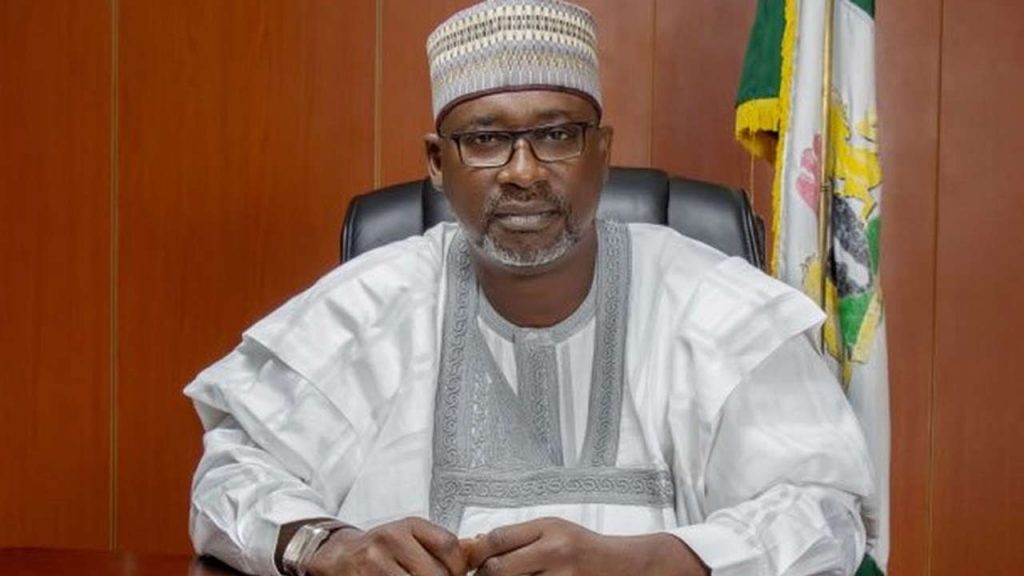Water resources in most parts of the world are strategic to a country’s overall wellbeing and national development; a strong reason for defining the power that should control and manage such resources. Unfortunately, sentiments, politics and speculative claims have become the greatest obstacles to the passage of the National Water Resources Bill in Nigeria. The bill, which was first introduced during the 8th National Assembly, is yet been trailed by claims and counter-claims even after its re-introduction in the current 9th assembly. The strangest irony in the controversies trailing the bill is its biggest beneficiaries being its worst enemies.
In a recent extensive interview with Trust TV, Nigeria’s Minister of Water Resources, Engr Suleiman Hussein Adamu, provided insight into the provisions of the bill. According to him, 95 per cent of the bill are laws already existing in different forms. He said the bill is only an attempt to harmonise all the laws in the water resources sector into a single document.
- Kidnapped Nollywood stars regain freedom
- Condemnations as NBC fines Trust TV N5m over banditry documentary
Engr Adamu explained that the country, at present, has four different federal laws governing its water resources: The Water Resources Act 2004; The Nigerian Hydrological Services Act, The National Water Resources Institute Act, and The River Basins Development Authorities Act. For now, and within the provisions of the Water Resources Act 2004, the control of the country’s water resources is vested in the federal government.
Adamu noted further that the bill had been in the making since 2008, reviewed by experts in 2015, ratified by the National Council on Water Resources and endorsed by the Federal Executive Council in 2016. Yet, it has been enmeshed with unnecessary and unhelpful politics and controversy at the National Assembly, particularly in the Senate, and the spurious and unfounded claims that it is a source of division between the northern and the southern parts of the country.
The lawmaker representing Andoni/Opobo/Nkoro Federal Constituency of Rivers State, Awaji Inombek Dagomie Abiante, recently disclosed when he received a delegation of the Ijaw National Congress (INC) which said that Ijaw and other ethnic nationalities will continue to oppose the water resources bill; arguing that the bill seeks to commercialise the utilisation of water resources via a licensing regime.
The bill has also sparked the ire of the Nigerian Governors’ Forum (NGF) which, rising from its 5th teleconference meeting on Tuesday, July 26, 2022, issued a communique signed by its chairman and Ekiti State governor, Dr. Kayode Fayemi, kicking against the bill on the grounds that it is inconsistent with the provisions of the Constitution of the Federal Republic of Nigeria, but without stating clearly the areas of inconsistency. And even before the bill was sent to the National Assembly, the Minister of Water Resources had on September 18, 2020 briefed the governors, where the governor of Benue State, Samuel Ortom, opposed it, saying it was intended to grab lands from river banks.
Most of these are unjustified and unnecessary fears. The National Water Resources Bill 2020 provides for the empowerment of irrigation farmers through the creation of water user associations, which would be given the mandate to handle the maintenance of secondary and tertiary irrigation infrastructure. It also provides for the Water, Sanitation and Hygiene Fund (WASH Fund). When created, state governments are the direct beneficiaries of these funds. With WASH fund, states would be able to invest more in water sanitation and hygiene projects. The money for this fund shall be contributed by the federal government, states, and development partners.
Furthermore, in the same way that the government has control over all the federal highways in the country, existing laws equally empower the federal government to exercise similar control over all trans-boundary waters; which are waters that transcend states. If this control is not vested in the federal government, any state could wake up any day to build dams at any point on our rivers without minding the implications of its action. Benue State, for example, could decide to dam River Benue; thereby putting other states in the downstream, including Kogi, Anambra, Delta, Bayelsa and Rivers states, at risk. This explains why there is need for a central authority over transboundary waters.
Overall, Daily Trust believes that while the concerns of many groups about the bill cannot be dismissed, they are not sufficient justification for throwing the baby away with the bath water. The need to streamline and harmonise all the existing laws within a sector into a single document is a good initiative in itself. The introduction of WASH and the additional funding it will generate for states are also commendable. The involvement of communities and users in the effective management of Nigeria’s water resources is also good for the country. These provisions in the bill, and many more, would advance Nigeria’s management of its water resources. We urge the sponsors of the bill to engage more effectively with different stakeholders to ally the concerns of all and save the bill.

 Join Daily Trust WhatsApp Community For Quick Access To News and Happenings Around You.
Join Daily Trust WhatsApp Community For Quick Access To News and Happenings Around You.



